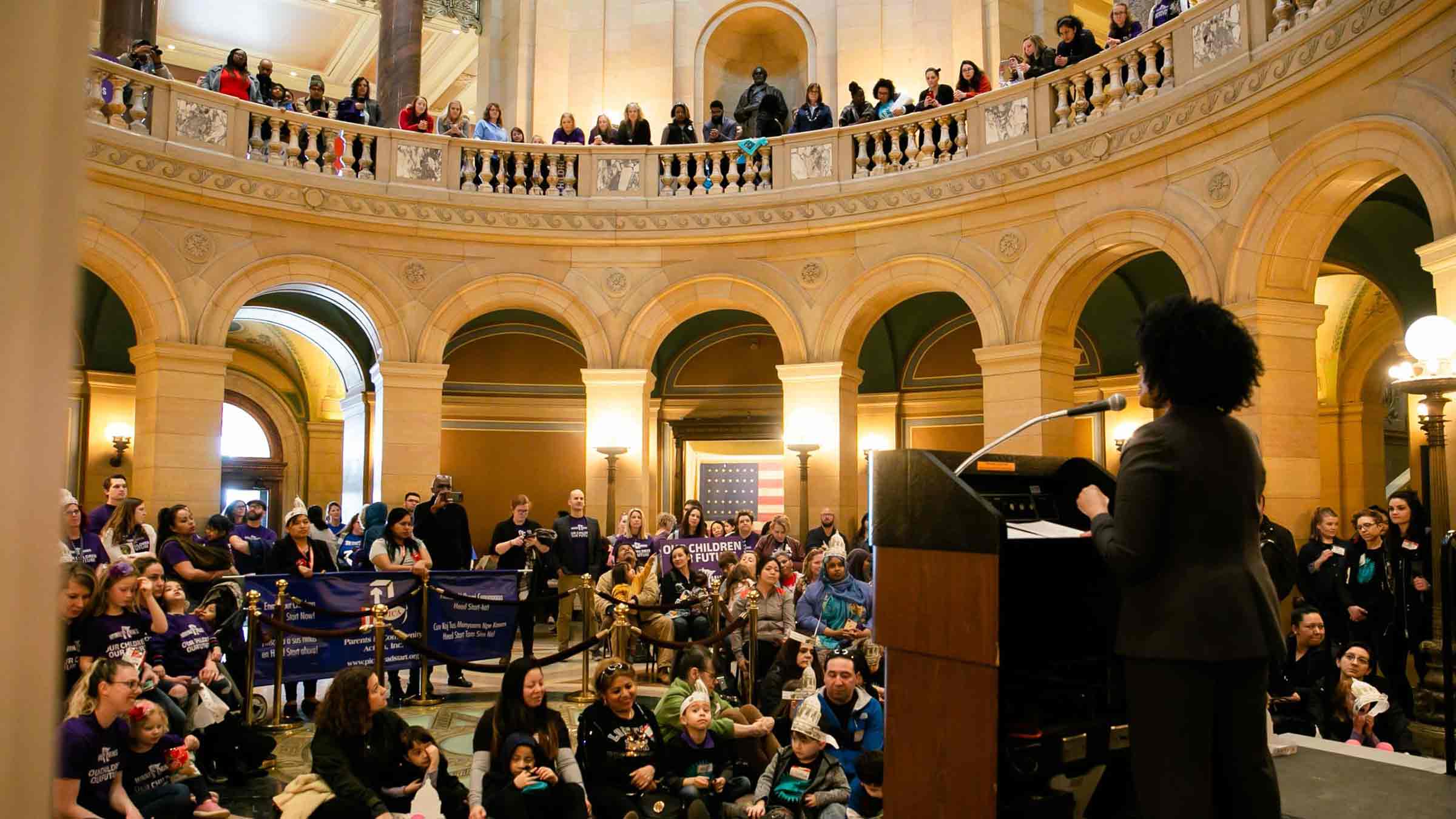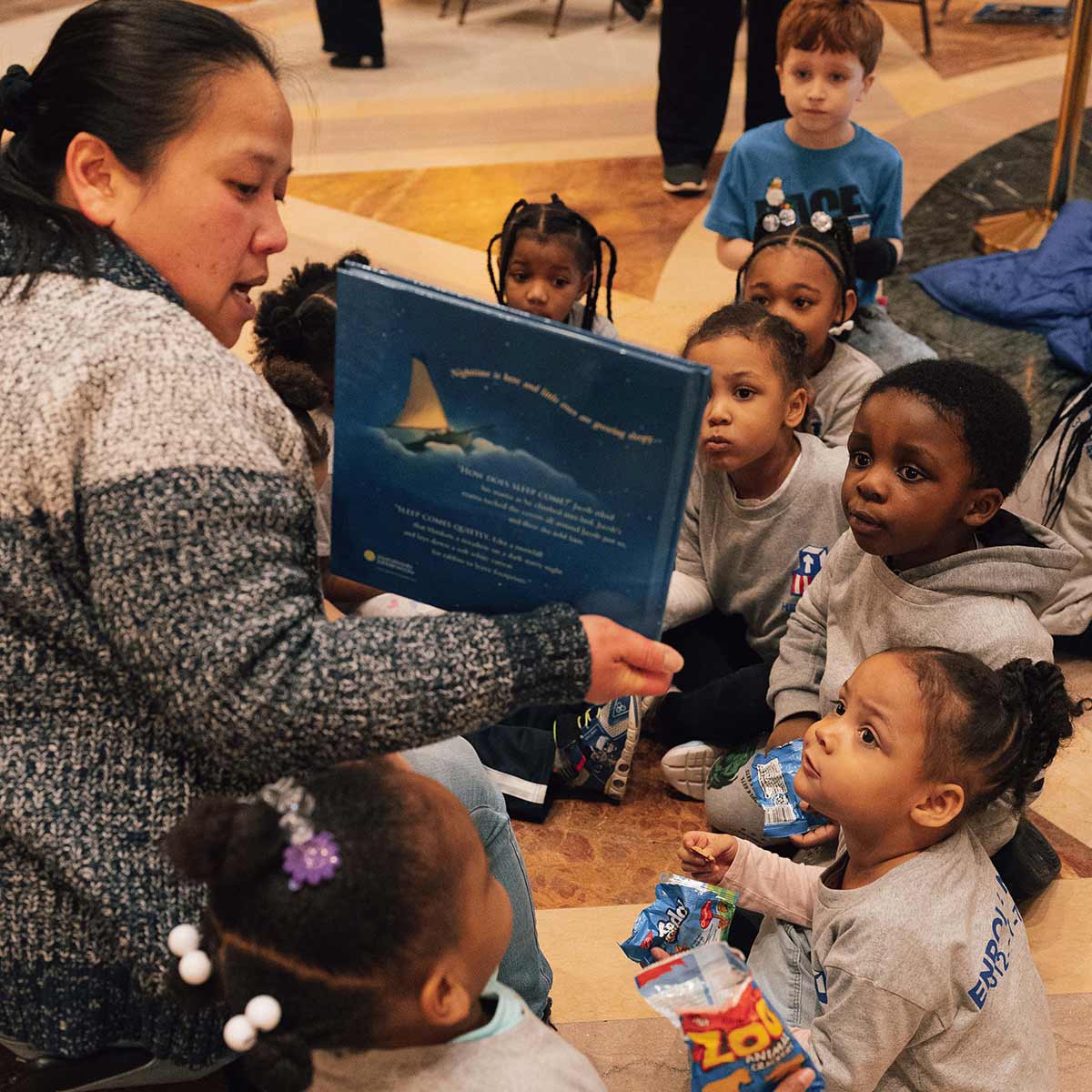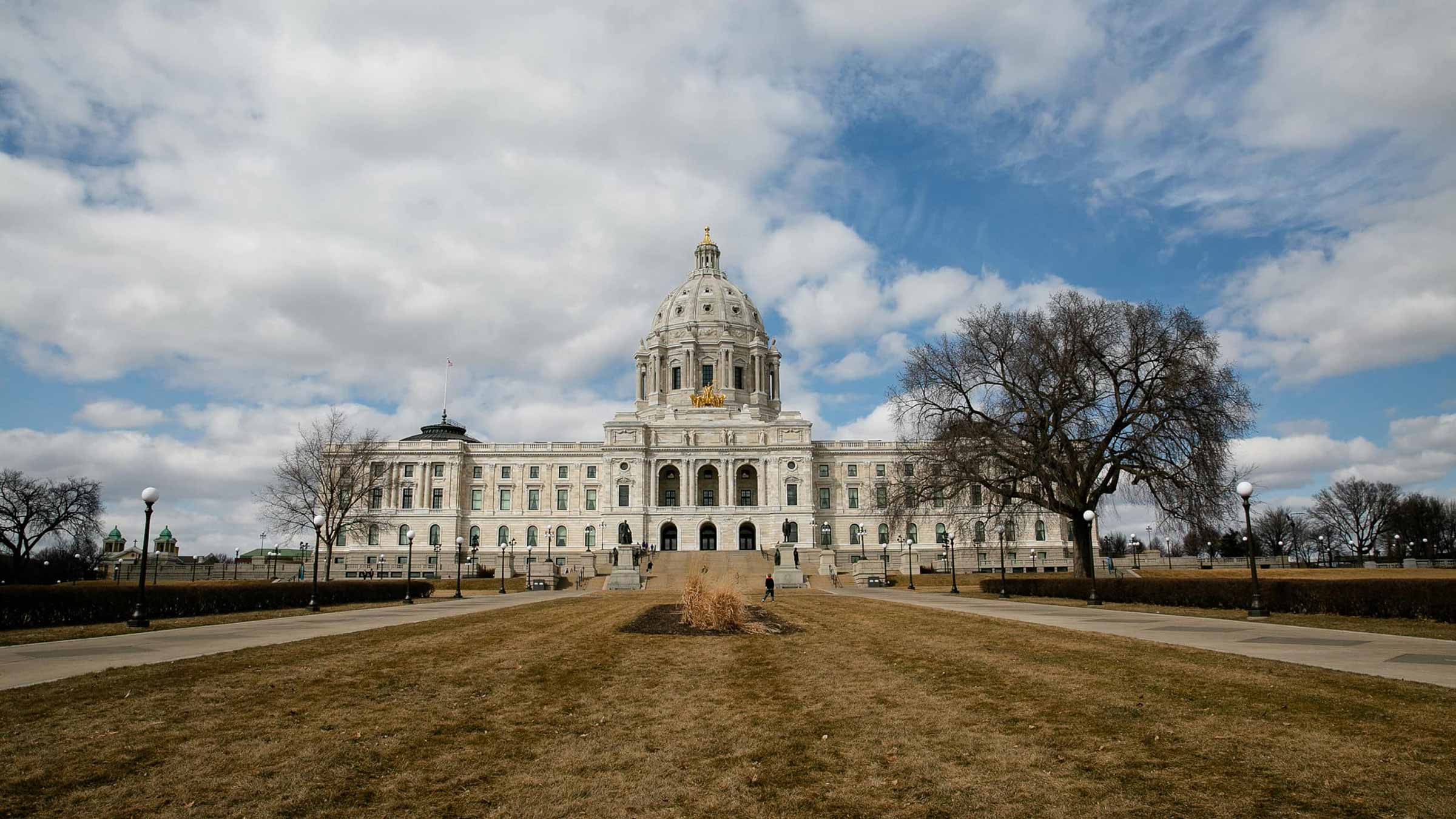Lasting change is only possible when we influence the systems and policies that affect our lives. We advocate for policy shifts and build coalitions to widen our collective impact – accomplishing change far beyond what any organization can do alone.


Co-created with the community, our Policy and Advocacy Agenda outlines the key policy issues we're leading and supporting at the Capitol.

Make a donation to Greater Twin Cities United Way and support our policy and advocacy efforts at the Capitol and beyond.
Sign up for our Advocacy Network to receive action alerts and other opportunities to stand up for lasting change in our state.

Advocacy amplifies our impact across our region and state. Our partnerships deeply inform this work, providing data and perspective to help lawmakers connect the dots between issues and solutions.
Advocating for change takes all of us working together. Your voice can help make lasting change a reality. Connect with our team or make a donation to join the conversation and support our ongoing advocacy.
Find infographics, videos, flyers etc. to share with your network and help spread the word about the urgent issues we’re addressing through our advocacy work.
Support our work in advocacy and engagement and help us spark new conversations that lead to lasting change.
Below are responses to some of the inquiries we get most often about advocacy with Greater Twin Cities United Way.
Put simply, advocacy is about supporting good causes at the local, state and national level. Our advocacy team works to build lawmakers’ support for policy shifts and new investments that advance the community’s vision and allow all people to thrive regardless of income, race or place.
Our policy and strategic direction, including the Policy and Advocacy Agenda, is set by a volunteer board of directors. You can learn more about our board members.
You can learn more about our current policy and advocacy priorities by reading through our 2024 Policy and Advocacy Agenda.
We strive to create a community where all thrive regardless of income, race or place. To do this, we work with partners to change inequitable housing, food, education and employment systems so they’re available to everyone.
Learn about our impact areas.
Greater Twin Cities United Way depends on the feedback and perspective of our nonprofit partners to identify the most pressing challenges in our communities. As we work to develop our advocacy agenda, we collaborate closely with the community through multiple rounds of consultation and feedback -- at all times, keeping our focus on the perspectives of those who are most impacted by the issues. The result of this process, our policy and advocacy agenda, is then approved by our board of directors.
2023 was a hugely consequential year -- and we were pleased to see unprecedented investments and policy shifts around many of our priority issues. Read more about our advocacy impact in 2023.
Advocacy before policymakers and lawmakers is a key part of Greater Twin Cities United Way's approach to creating change. Our advocacy team includes registered lobbyists, and we also work with external lobbyists during the legislative session to engage lawmakers and advance key policy priorities.
Greater Twin Cities United Way partners with a number of organizations who share our vision and our priorities for change. Organizations we’ve partnered with recently include Ignite Afterschool, the Minnesota Association for the Education of Young Children, the Minnesota Education Equity Partnership, Saint Paul Promise Neighborhood, The Link, and the Minnesota Coalition for the Homeless.
We can’t do this work without the support of changemakers like you. Our advocacy resources include tips for connecting with lawmakers, issue fact-sheets and more.
Some helpful pointers from our advocacy team for communicating with lawmakers and policy leaders.
A few quick tips to keep in mind when writing letters or emails to your legislators.
A brief overview for lawmakers and community members of the impact we’re continuing to make with 211.
A brief overview for lawmakers and community members of opportunities to prevent homelessness and strengthen our housing system.
A brief overview for lawmakers and community members of the significance of early childhood education.